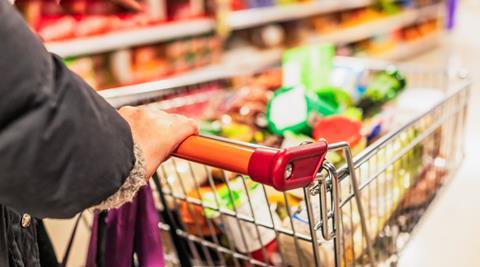City snapshot: summer boosts food and clothing sales | News

Top story
UK retail sales were back in growth in July after a poor June as the advent of summer and warmer weather boosted food and clothing sales.
According to the monthly BRC-KMPG Retail Sales Monitor for the four weeks to 27 July, total UK retail sales increased by 0.5% year on year.
This was against a growth of 1.5% in July 2023, but above the three-month average growth of 0.3% after a weak early summer due to poor weather.
Food sales were up 2.6% year on year over the three months to July and the sector was in growth year on year in July.
Non-food sales decreased 1.7% year on year over the three months to July, against a decline of 0.5% in July 2023 and remained in decline in July.
In-store non-food sales over the three months to July decreased 2.7%, while online non-food sales increased by 0.3%.
The online penetration rate increased to 35.5% in July from 34.9% in July 2023.
Helen Dickinson, CEO of the British Retail Consortium, said: “Retail sales returned to growth, driven by an increase in food purchases. The late arrival of British sunshine led to a better month for summer clothing and health & beauty products as shoppers prepared for days out with friends and holidays away.
“However, as consumers spent on holidays and entertainment, sales of indoor goods, such as furniture and household appliances, were squeezed out. This left non-food once again in negative growth, particularly for in-store sales.
“Now that election uncertainty is over and government is rolling out plans to kickstart economic growth, retailers are planning their own investment strategies. Many will be looking to the Autumn Budget, keen to see an end to business rates rises under the new Labour government. They will also be looking for any details of the reform of the whole business rates system, promised in Labour’s manifesto.”
Linda Ellett, UK head of consumer, retail & leisure, KPMG, added: “While summer staples, such as health, beauty, and gardening products have helped to drive retail sales growth both online and in-store in July, the upturn is likely much less than retailers were hoping for at this key time of the year. A busy summer of televised sport has played a beneficial role in increasing TV, mobile and tablet sales over the last two months, but there’s little evidence of other big ticket purchases taking place.
“Spending levels continue to be governed by whether households have been able to absorb the likes of mortgage and rent increases, or had to limit their spend elsewhere as a consequence. Also, while some sectors are seeing wage growth, others are cutting posts – leaving some consumers mindful that they may need to fall back on savings if they find themselves out of work.
“ONS data for the first quarter of 2024 shows a growing average percentage of household income being put into savings. But it’s looking increasingly likely that the retail sector will see a gradual drip effect from those choosing to spend some, rather than the spending taps suddenly being turned on full.”
Commenting on food and drink sector performance, Sarah Bradbury, CEO, IGD, said: “Grocery sales in July were higher than last year, with sales particularly strong in the final two weeks of the month, undoubtedly helped by the mini heatwave the UK enjoyed at the time, which saw the hottest day of the year recorded so far.
“While the new government sets expectations around change taking time, shoppers are adjusting their outlook. As Labour lay out their plans for the years ahead, we expect to see further divergence in experience.
“An August heatwave and GB’s successes at the Olympics are likely to cause a short-term uplift in confidence and therefore more trade-up opportunities as we’ve previously seen at the Euros. This would continue a three-month trend of continued growth for grocery, as spurred on by the weather.”
Morning update
Revenues at Domino’s Pizza Group were broadly flat in the first half as growth was held back by strong comparators and a holding back of marketing spend.
Group system sales in the half year to 30 June were up 0.2% to £767.7m and down 0.5% on a comparable basis against tough comparators in the prior year.
The group said its first quarter and April were challenging driven by a slower delivery market and by the tactical holdback of marketing spend, particularly in January.
However, orders were back in growth in the second quarter “highlighting the growing traction of our strategic initiatives”.
During the period it opened 22 new store openings (against 29 in the same period last year), while its pipeline remains strong, with 38 stores in construction or planning approved.
It also made continued digital progress with growth in app customers and orders, while it has taken the decision to permanently roll out on the Uber Eats platform following extensive data-led trial that attracted incremental customers and orders.
First half underlying EBITDA was up 0.4% to £69m, with lower supply chain EBITDA, due to the pass-through of food costs, more than offset by the contribution from Shorecal and lower technology platform costs.
Underlying profit before tax was £51.3m, up 0.8% as lower amortisation charge of £1.3m was largely offset by increased finance costs.
The company expects to deliver growth in both order count and like-for-like sales for the full year, despite “the uncertain market”.
However, given the slower start to the first half and the greater pass-through of food costs to franchise partners, it now expects full year underlying EBITDA to be towards the lower end of the current range of market expectations.
CEO Andrew Rennie commented: “Following a slow start to the year, we now have good momentum in the business with our strategic initiatives gaining traction and our trading performance accelerating steadily against strong comparatives from last year.
“In Q2 we grew orders, with a notable improvement from the middle of May and importantly have halted the trend of declining delivery orders. These are now returning to growth and this momentum has continued through June and July, helped by a good performance through the men’s Euro football tournament.
“We’re executing well in an uncertain market thanks to our unrelenting focus on brilliant value, quality and service for our customers. Our average delivery time is now 24 minutes, which creates even better value for our customers. We have continued to support the growth of the system through passing on food cost deflation to our franchise partners.
“In our core UK & Ireland business, we see significant opportunity for further growth through opening new stores, an exciting new loyalty trial to drive frequency and a focus on value and service, especially in the delivery channel. There is alignment with our franchise partners and tangible energy across the system to capitalise on this opportunity.”
“We continue to operate a capital light business and are moving towards our goal of building a larger and more profitable business for our shareholders, franchise partners and colleagues.”
Elsewhere this morning, consumer card spending fell 0.3% year on year in July, a slight improvement on June, as the mixed weather across the month continued to pose challenges for retailers.
According to new data from Barclaycard, spending on non-essential items saw further decline in July (–0.7%) compared with June (+0.5%), with 48% of consumers making the effort to cut down on discretionary spending (up from 46% last month).
After the unseasonably wet start to July, the arrival of warmer days and belated summer sales did result in a modest recovery for retail.
The sector was down just 1.1%, compared with a dip of 2.6% in June, buoyed by a 6.4% uplift in spending on health & beauty. Clothes shopping fell 2.3%, but this represented a considerable improvement on June’s 7.7% decline.
Pubs, bars and clubs saw an uplift of 4.9% in July – the category’s highest growth since January – as football fans flocked to their local to watch the final rounds of the Euro 2024 tournament. Despite England’s loss, the final against Spain led to payment transactions almost tripling at pubs and bars on 14 July, increasing by 195.6% year on year. This also marked the busiest Sunday of the year for pubs, with transaction volumes up 92.9% compared with the average Sunday in 2024.
Fast food and takeaways saw muted growth compared with June, increasing just 2.2%. Of the 48% planning to limit discretionary expenditure, almost half (47%) are cutting back on ordering takeaways.
Meanwhile, essential spending returned to growth in July (0.6%) after declining last month (–0.9%). This was largely driven by spending at food and drink specialists such as butchers and greengrocers, which saw their highest uplift (3.5%) since January – a sign that the handful of sunnier days in July encouraged consumers to buy BBQ ingredients to cook at home.
In contrast, growth at supermarkets remained flat year on year (0.0%), though this was an improvement on June (–2.5%).
Karen Johnson, head of retail at Barclays, said: “Shoppers and retailers alike will be ready to see the end of the summer showers. It’s encouraging to see seasonal staples such as BBQ supplies, beauty buys and holiday planning delivering signals of steady recovery.
“Despite England losing in the nail-biting final of the Euros, UK hospitality emerged as a true winner, when the Euros delivered a boost for pubs, bars and clubs. With the final days of the Olympics in Paris, Taylor Swift’s return to a sold-out Wembley Stadium for her final UK Eras Tour dates, and a heatwave on the cards, we hope summer spending will finish strongly in August.”
Jack Meaning, chief UK economist at Barclays, said: ”While weather, sports events and concerts all look to have resulted in seasonal fluctuations, the bigger picture is that consumers are seeing their incomes and spending power rise and are becoming more confident in the overall economic outlook. This, coupled with the fact that the Bank of England has begun to reduce interest rates, should translate into stronger underlying spending growth, as we move through the second half of this year and into 2025.”
On the markets this morning, the FTSE 100 has edged back up 0.2% to 8,024.4pts.
Risers include Kerry Group, up 10.5% to €87.50, Glanbia, up 6.3% to €18.00 and THG, up 3.5% to 62.1p.
Fallers include Domino’s Pizza Group, down 4.8% to 294.2p after its profits downgrade this morning, Naked Wines, down 2% to 52.9p and Haleon, down 1.9% to 362.2p.
Yesterday in the City
If yesterday was not quite a ‘black Monday’, it was certainly a very grey one as the FTSE 100 followed global markets to drop 2% back to 8,008.2pts.
The global falls were driven by weak US job numbers on Friday and fears the world’s largest economy is facing a slowdown, having previously outperformed other major economies post-Covid.
Amongst the many fallers yesterday were Nichols, down 7.4% to 1,060p, McBride, down 6.2% to 120.5p, THG, down 5.4% to 60p, Coca-Cola HBC, down 4.9% to 2,694p, C&C Group, down 4.2% to 151.6p, Greggs, down 4.2% to 2,950p and British American Tobacco, down 3.4% to 2,693p.
The listed supermarkets Tesco and Sainsbury’s were down 1.7% to 321.1p and 3% to 265.6p respectively.
The only stocks to escape falls yesterday were Fever-Tree, up 0.6% to 910p and Haleon, up 0.4% to 369.2p.















































